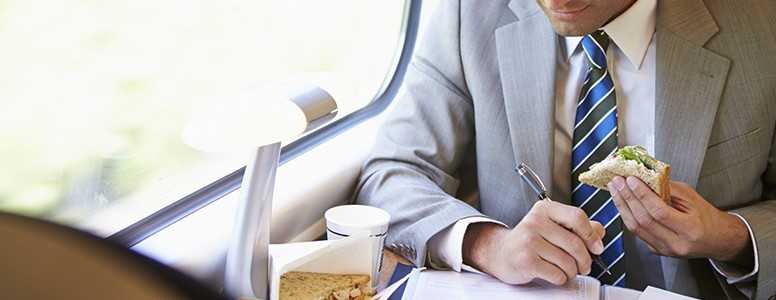People who commute to work in the UK consume an average of just less than 800 additional calories each week because of unhealthy snacking, a new report finds.
This report, which was commissioned by the Royal Society for Public Health (RSPH), polled 1,500 people and found that travelling to and from work by rail, bus or car is associated with several adverse health effects.
These included increased Body Mass Index (BMI), stress and blood pressure. Additionally, commuters had less time available for exercising, cooking and sleeping.
Eating an unhealthy diet can lead to people becoming overweight or obese, which increases the risk of developing type 2 diabetes. In total, two-fifths exercised less due to their commute, and one-third reported increased snacking or fast food consumption.
Overall, the workers believed their commute added an average of 767 calories to the diet each week.
Shirley Cramer, chief executive of RSPH, said: “For some of us the daily commute can be a pleasurable experience, giving time for reflection or an opportunity to relax, but for an increasing number of us it is having a damaging effect on our health and well-being.
“As the length of our commute increases this impact is getting worse, including by contributing to rising levels of stress, adding to our waistlines, or eating into time we could otherwise spend doing activities which enhance our health and well-being such as sleep, exercise or time spent with friends or family.”
The RSPH has called for restrictions on the sale of junk food in train stations, and believe this would help create a healthier travelling experience for passengers.
In response, a spokesman for the Rail Delivery Group, which represents train operators and Network Rail, said: “We know that commuting can be stressful, whether it’s by train, car, bus or tube.
“As part of its £50bn railway upgrade plan, the rail industry is building 12 new carriages a week to provide more seats and we’re improving the railway so that we can run more and longer trains. Today, quality, choice and healthier options form a big part of the food on offer at stations.”
In 2014, former chief executive of the NHS Sir David Nicholson cited reaching for convenience foods whilst travelling as a major factor that led to his diagnosis of type 2 diabetes.
To learn more about eating healthily and making tasty, filling meals which are prepared at homen, visit the Low Carb Program.
What's new on the forum? ⭐️
Get our free newsletters
Stay up to date with the latest news, research and breakthroughs.




